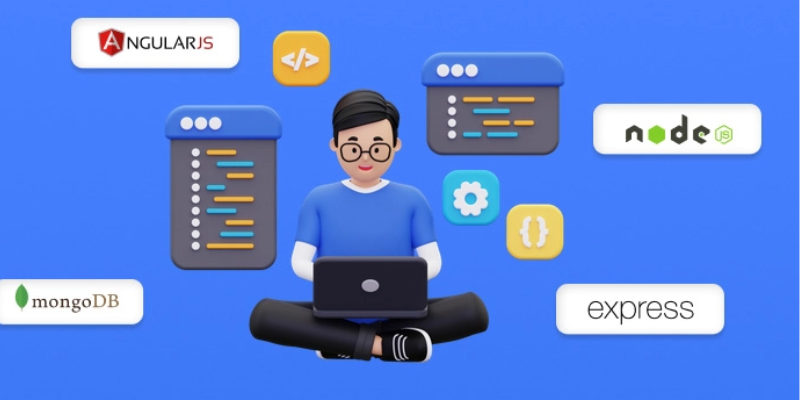One of the most thrilling and important stages of a student’s academic career is their campus placement. They act as a link between education and work, connecting years of study with practical chances. Academic achievement is no longer sufficient in today’s competitive work environment. Nowadays, employers look for applicants that are well-rounded and exhibit professional maturity, soft skills, and technical expertise.
Students must plan ahead and take initiative far in advance of placement season in order to succeed. Regardless of your field of study engineering, business, or the arts the secret is to recognize your skills, match them with your professional objectives, and project confidence to potential employers. This article examines useful and doable tactics to help you make the most of your placement possibilities and get off to a good start in your career. By learning these skills for the FITA Academy will help you get a job in your domain.
Early Career Planning
You’ll be more focused and self-assured when opportunities present themselves if you begin preparing for placements early. You can determine your interests, shortcomings, and strengths with early career planning. Start by looking at other career options associated with your course, such as data analysis, marketing, software development, finance, or design. Speak with experts, graduates, and mentors to learn about the practical aspects of each vocation.
Make a list of the credentials, credentials, and abilities you’ll need to be successful after you’ve determined your areas of interest. Establishing short-term objectives for every semester makes it easier to monitor development and maintain motivation. A common mistake made by students is to prepare just a few months prior to placement season, which causes needless stress. When recruiters arrive, a well-thought-out strategy that begins in the first or second year guarantees that you are mentally, technically, and intellectually prepared.
Building a Skill Foundation
The early phases of placement are heavily influenced by your academic record. Maintaining steady academic performance is essential since many employers have minimum grade or percentage requirements for qualifying. However, recruiters also look for appropriate technical and practical abilities, so good grades by themselves do not ensure success. Determine the tools and technologies that your industry requires. For instance, business students can learn Excel, Power BI, or data analytics; IT students can learn programming languages like Python, Java, or C++; and design students can become proficient in Adobe Creative Suite or Figma. By learning these skills through Placement Training in Chennai. They can be placed across the company easily.
Additionally, concentrate on honing your communication, critical thinking, and problem-solving abilities. These soft talents show that you can manage difficulties, collaborate with others, and adjust to business settings. You can improve your overall profile by applying academic knowledge to real-world situations by taking part in hackathons, workshops, or student groups.
Developing Resume and Portfolio
Your resume should be compelling, succinct, and clear because it is frequently the first thing recruiters see. To showcase your accomplishments, use bullet points rather than lengthy words. Start with the most important information, such as academic projects, internships, certifications, education, and skills. Stress quantifiable outcomes. For instance, “Improved team efficiency by 15% through automated data tracking” sounds more impactful than “Worked on data tracking.”
Keep an online portfolio of your greatest work if you work in a creative or technical industry. Your trustworthiness can be shown through LinkedIn accounts for professionals, Behance portfolios for designers, or GitHub repositories for developers. Make your resume unique for each firm by matching your experiences and qualifications to their job specifications. Lastly, even before the interview stage, editing for grammatical errors and formatting inconsistencies can make a bad impression.
Leveraging Projects
One of the best tools for any student preparing for a placement is practical experience. Through internships, you can learn how businesses operate and apply what you’ve learned in the classroom to practical activities. Even brief or online internships can broaden your experience and teach you teamwork, project management, and workplace discipline. Candidates having at least one practical internship experience are preferred by many businesses since it shows initiative and flexibility.
In addition to internships, go to seminars and workshops run by professionals in the field or your college. You stay up to date on the newest tools and trends thanks to these events. Completing projects related to academia or business can also help your resume stand out. Students who can show that they can solve problems practically are valued by employers. As an engineering student, for example, creating a functional prototype or application can demonstrate your technical proficiency and creativity. It is good to encourage a student to enroll in a Training Institute in Chennai for engineering-related job opportunities.
Improving Communication Skills
When two candidates are equally qualified, communication skills are frequently the decisive factor. You can confidently and clearly convey your thoughts during interviews if you have strong writing and vocal communication skills. Start by honing your English and practicing group discussions (GDs). To get over stage fright, take part in campus debates or join public speaking clubs.
Another great method to get ready is through mock interviews. Use friends, mentors, or placement trainers to practice technical and HR interviews. Learn to confidently and clearly respond to inquiries like “Tell me about yourself” and “Why should we hire you?” Tell the truth about your experiences. Authenticity is more important to recruiters than prepared responses. Making a lasting impression also heavily depends on body language, eye contact, and pleasant tone. Recall that interview preparation is an ongoing process; the more you practice, the more self-assured you will become.
Placement Networking Effectively
Beyond conventional on-campus drives, networking can greatly increase your placement prospects. Developing connections with industry executives, alumni, and seniors might help you learn more about particular businesses and positions. Particularly, alumni can offer first-hand accounts of expectations, business culture, and interviews. Internal references are also preferred by many organizations, and you can take advantage of these opportunities if you have strong professional relationships.
Make connections with professionals in your target companies by utilizing LinkedIn. Share your accomplishments or initiatives, interact with their material, and pose insightful questions. Participate in placement workshops, webinars, and career fairs that your college hosts. Early professional network building creates chances for future career progress in addition to helping during placements. The secret is to network with a sincere desire to learn and share ideas instead of just looking for work.
Staying Updated in Placement
With new tools and technology appearing every year, the labor market is changing quickly. Keeping up to date guarantees that employers will find your abilities useful. Keep up with IT news portals, professional magazines, and industry blogs. You may stay up to date with short courses from platforms like edX, Coursera, and LinkedIn Learning.
For instance, whereas management students can concentrate on digital marketing, data-driven decision-making, or corporate analytics, IT students should investigate subjects like artificial intelligence, cloud computing, and cybersecurity. Participating in professional forums, attending webinars, and reading case studies can all offer insightful information on how industries are adjusting to digital transformation. During interviews, showcasing your knowledge of current trends demonstrates to employers your initiative and readiness for the future. So these trainings will help the students with tips to handle rejection during the placement season.
Extracurricular Achievements
Well-rounded people who can manage academics, leadership, and social activity are highly valued by employers nowadays. Engaging in extracurricular activities, including volunteer work, cultural events, or student groups, fosters leadership, teamwork, and time management abilities. These experiences frequently result in soft skills like accountability, creativity, and problem-solving that employers value.
Emphasize in your resume any leadership roles you have held in groups or activities you have planned at your college. They demonstrate your ability to work under pressure, collaborate with others, and produce outcomes skills that are essential in every business setting. Finding a balance between concentrating only on academics and completely ignoring them is crucial. You stand out as a vibrant and competent candidate when you combine excellent academic standing with involvement outside of the classroom.
Continuous Learning Approach
Placement seasons can be stressful, particularly if there are delays or rejections. It’s crucial to keep an optimistic outlook throughout this time. Consider each exam and interview as a teaching opportunity rather than a definitive verdict. Consider the criticism you’ve heard and concentrate on strengthening your areas of weakness. Recall that even the most accomplished experts have obstacles to overcome before reaching their objectives.
You will stand out if you have an attitude of constant learning. Continue learning new things and developing your abilities. To stay active, accept online challenges, read professional literature, or enroll in certification classes. Recruiters value resilience and adaptability since they show that you can develop with the company. If you are persistent, self-assured, and receptive, you will eventually find the ideal opportunity.
Placement Preparation into Success
Planning, skill development, networking, and persistence must all be balanced in order to maximize placement prospects. You may put yourself ahead of the race by starting early, solidifying your academic background, and actively searching out real-world experiences. Because recruiters are looking for potential rather than perfection, give equal attention to technical proficiency, communication, and confidence-building.
Keep in mind that placements signify the start of a lifetime career path rather than merely landing your first job. You’ll discover that each step you take advances you toward your career objectives if you approach the process with interest, dedication, and optimism. You can use your college placement opportunity as a springboard for a prosperous and rewarding career if you have the proper planning and attitude.



